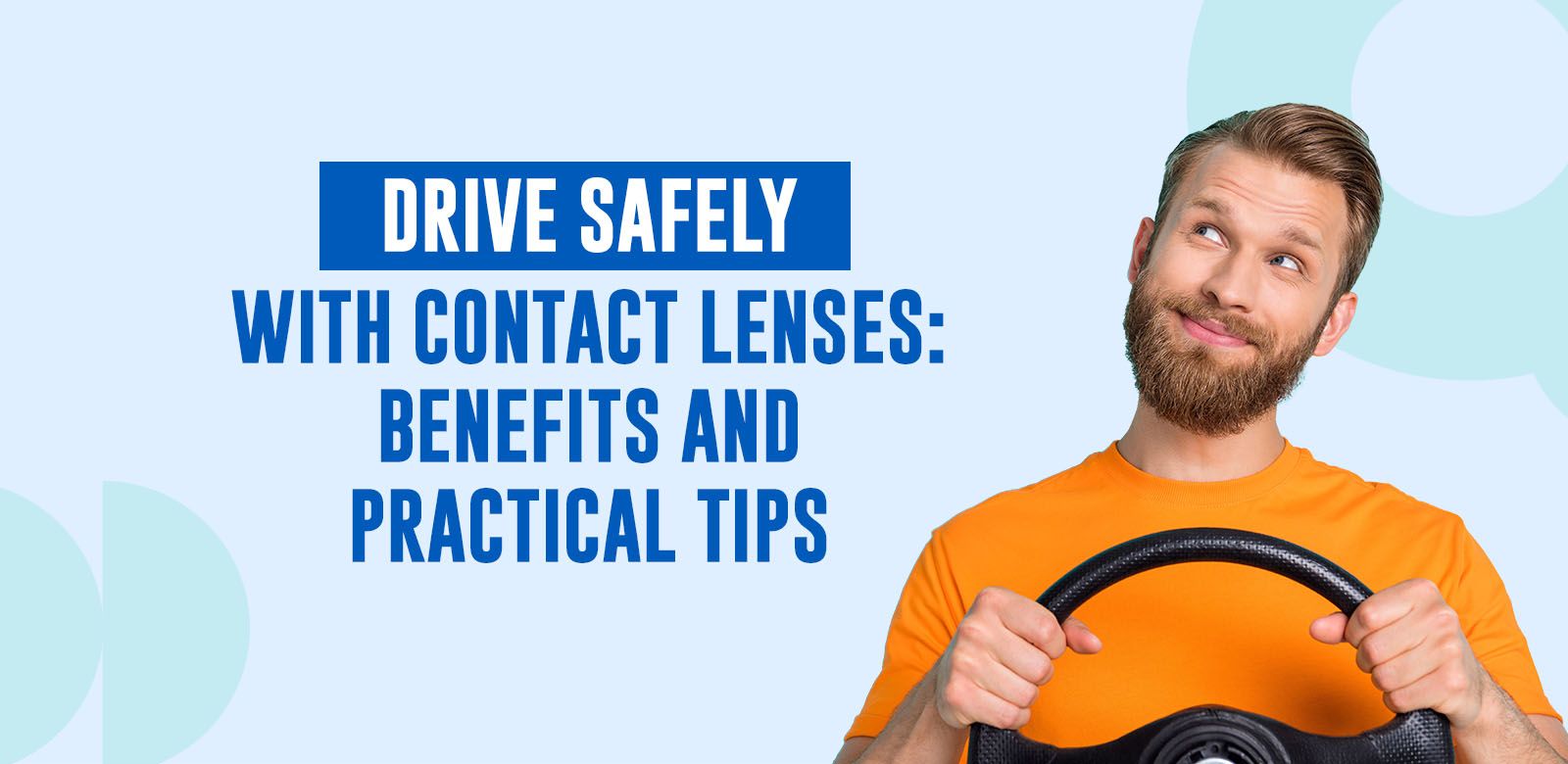

Driving with your lenses is not only possible but can also provide you with numerous benefits. However, it is crucial to know the best practices to ensure your safety and that of others on the road.
The benefits of driving with your contact lenses
-
Clear and precise vision: Lenses offer you complete peripheral vision, unlike glasses that can limit your field of view. This is especially important when driving, as it allows you to monitor blind spots and your wing mirrors.
-
Increased comfort: Unlike glasses, contact lenses do not slip off your nose, fog up, or get dirty. They allow you to stay focused on the road without needing constant adjustments.
Our tips for driving safely
-
Make sure your lenses are suited to your vision: Whether you're nearsighted, astigmatic, or farsighted, it’s important to wear lenses adjusted to your vision. Incorrect correction can make your vision blurry and uncomfortable. Regularly consult your ophthalmologist to ensure they meet your needs.
-
Keep your eyes well hydrated: Car air conditioning and heating systems can dry out your eyes, especially on long trips. To avoid this, always have hydrating drops in your car,from the brand Blink or Systane. Also, avoid directing the air conditioning towards your face, as it can dry out your eyes.
-
Keep a spare pair of glasses: It is essential to have a spare pair of glasses when you drive. If your contact lenses become uncomfortable or if you feel irritation, you can switch to your glasses and continue driving comfortably.
-
Avoid wearing coloured lenses: It is strongly discouraged to wear coloured contact lenses while driving, especially at night. These models can alter your colour perception and vision clarity.
Driving at night with lenses
-
Take regular breaks: Driving at night can be tiring for your eyes, especially if you wear contact lenses. Take regular breaks to rest your eyes. Take advantage of these pauses to hydrate and stretch, contributing to your well-being.
-
Watch for signs of dryness: Eye strain and dryness are more common at night. Use hydrating drops if necessary and ensure your lenses are well moistened before resuming driving. If you experience persistent discomfort, it's best to remove them and switch to glasses.
As you can see, the key to driving safely and comfortably is to choose the right lenses, maintain them properly, and always have eye drops and a spare pair of glasses on hand.





